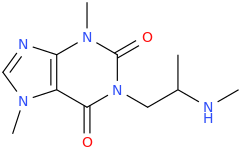MountainTop
Greenlighter
- Joined
- Mar 30, 2014
- Messages
- 8
SO... it's time for finals!..
The past week I have used adderall/dexedrine/vyvanse for Finals. I have a headache, lack of sleep and my wallet is lighter. So far I feel like my marks are not so brilliant either.
What the heck right?
I can honestly say that I would have done 10X better not taking the adderall/dex/vyv, but by taking an extra dose of Wellbutrin (half 150mg SR), and drinking a big cup of coffee right after.
The buzz from an extra dose or a cup of coffee right after dosing is unparalleled, in slight perspective.. I would compare it to a burst of warmth, like mdma... with a hyper focus, like taking 40mg vyvanse or 20mg adderall - and without the dodgy side effects.
I started Wellbutrin (150mg SR x 2 daily) a year ago - and find it very effective for memorizing, long tasks, organized, social and seeing good results academically & in personal lifestyle.
From my knowledge Wellbutrin stimulates the executive function of the brain + enhancing control over emotions, instead of dampening them like Adderall.
This in-which leads one to produce answers that combines Analytical AND Emotional/creativity in responses... when most people can only think of one or the other - especially on adderall (analytical).
My teacher actually noted this as a unique talent that has shown in my papers - But I give all the credit to Wellbutrin.
...It would be cool to know more of the actual science behind this.
MT
----
The past week I have used adderall/dexedrine/vyvanse for Finals. I have a headache, lack of sleep and my wallet is lighter. So far I feel like my marks are not so brilliant either.
What the heck right?
I can honestly say that I would have done 10X better not taking the adderall/dex/vyv, but by taking an extra dose of Wellbutrin (half 150mg SR), and drinking a big cup of coffee right after.
The buzz from an extra dose or a cup of coffee right after dosing is unparalleled, in slight perspective.. I would compare it to a burst of warmth, like mdma... with a hyper focus, like taking 40mg vyvanse or 20mg adderall - and without the dodgy side effects.
I started Wellbutrin (150mg SR x 2 daily) a year ago - and find it very effective for memorizing, long tasks, organized, social and seeing good results academically & in personal lifestyle.
From my knowledge Wellbutrin stimulates the executive function of the brain + enhancing control over emotions, instead of dampening them like Adderall.
This in-which leads one to produce answers that combines Analytical AND Emotional/creativity in responses... when most people can only think of one or the other - especially on adderall (analytical).
My teacher actually noted this as a unique talent that has shown in my papers - But I give all the credit to Wellbutrin.
...It would be cool to know more of the actual science behind this.
MT
----
Last edited:

